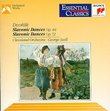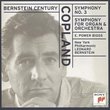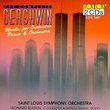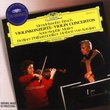| All Artists: Nicolas Pasquet Title: LAJTHA: Symphonies Nos. 3 and 4 / Suite No. 2 Members Wishing: 0 Total Copies: 0 Label: Marco-Polo Release Date: 7/24/2009 Genre: Classical Styles: Forms & Genres, Suites, Historical Periods, Modern, 20th, & 21st Century, Symphonies Number of Discs: 1 SwapaCD Credits: 1 UPC: 730099367127 |
Search - Nicolas Pasquet :: LAJTHA: Symphonies Nos. 3 and 4 / Suite No. 2
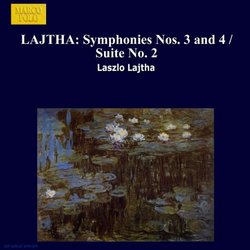 | Nicolas Pasquet LAJTHA: Symphonies Nos. 3 and 4 / Suite No. 2 Genre: Classical
LAJTHA: Symphonies Nos. 3 and 4 / Suite No. 2 by Nicolas Pasquet |
Larger Image |
CD DetailsSynopsis
Album Description LAJTHA: Symphonies Nos. 3 and 4 / Suite No. 2 by Nicolas Pasquet Similar CDs
Similarly Requested CDs
|
CD ReviewsVery good recording of excellent music G.D. | Norway | 03/16/2009 (5 out of 5 stars) "László Lajtha has never received the recognition he obviously deserves. I am not going to claim that his music is on the level of Bartók's, maybe not even of Kodály's, but he isn't far behind, and his neglect may be more due to political circumstances than anything to do with his music. Besides Lajtha was, as opposed to the two mentioned composers, a symphonist - a great symphonist, at that; probably Hungary's greatest symphonist ever. The Marco Polo series of his orchestral music is hence a very important one. Stylistically the music will probably appeal to those who like the music of late Debussy, Kodály or Martinu - but it doesn't really sound anything like any of them.
The fourth symphony is definitely one of his best, and isn't far short of being a masterpiece. It has something of the atmosphere of escapism, being witty, joyful and fantastic, in stark contrast to the composer's situation in Hungary at the time it was written - and in contrast to many of the works the composer wrote at the time. Like most of his symphonies, the work is in three movements, none of them really slow but the middle Allegretto at lest more reflective than the Allegro molto and Vivace movements flanking it. The whole work is highly inventive, containing several remarkable twists on folk or folk-like tunes, especially with regards to the airy and "transparently lush" orchestration. Listen, for example to the exquisite violin solo closing the first movement to hear a truly remarkable example. The last movement is a hugely entertaining, life-affirming round-dance. The second suite was originally collected from a possibly allegorical dance comedy (`The Grove of Four Gods'). The music here is enjoyable and light (but with some dark shadows lurking beneath the surface). It is all attractive, even memorable, but not on the level of the fourth symphony. The third symphony isn't quite on that level, either, but not far behind. It is apparently part of the same group of works as the Orchestral Variations (available with the second symphony on another Marco Polo disc) composed for a film on the life and death of Thomas Beckett. It is certainly darker in mood than the fourth, but exhibits many of the same qualities, in particular with regards to the masterly orchestration. The Pécs Symphony Orchestra under Pasquet plays these works well, and they are very much able to bring out the various sonorities and textures. There is a certain lack of refinement and a certain lack of tidiness to the playing, but not so much so as to detract from the listening pleasure. The sound quality is very dynamic and good. Very strongly recommended." |

 Track Listings (9) - Disc #1
Track Listings (9) - Disc #1

